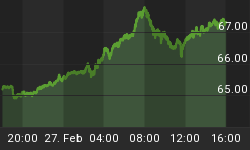The U.S. Federal Reserve (Fed) and the European Central Bank (ECB) are divided by a common goal: price stability. Fed Chairman Bernanke has made it clear in his recent testimony and speeches that the Fed would react should food and commodity inflation lead to an increase in core inflation. Let's spell this out: the Fed is ready to R E A C T. We are not aware of any central bank that is proud of reacting, but rather acting preemptively to mitigate inflationary concerns; naturally, a central bank may often be forced to react, but to do so by design puts the cynical view that central bankers are too far behind the curve into a new light.
In contrast, in Thursday's press conference, the ECB President Trichet said "risks to the outlook for price developments are on the upside;" and that it "is paramount that the rise in [..] inflation does not lead to second-round effects." He then clarified that the ECB is "in a posture of strong vigilance," and that based on past experience, this suggests an increase in interest rates at the next meeting is possible. Indeed, in ECB parlance, "strong vigilance" has all but once been a codeword for an upcoming rate hike.
Given the most recent developments, the jump in the euro versus the U.S. dollar should not be a surprise, and may be exactly what Bernanke is trying to achieve. Bernanke, unlike his predecessor, embraces the discussion surrounding the dollar. Indeed, we believe Bernanke considers the U.S. dollar a monetary policy tool. Our assessment is based on both words and action by the Fed Chair. Bernanke has argued:
-
Going off the gold standard allowed the U.S. to recover faster from the Great Depression than other countries. Our interpretation: if you devalue your currency, you may boost growth. Note that someone has to be on the other side of the trade: the Eurozone in particular may have lackluster growth because less money is being printed, but a stronger currency.
-
Bernanke believes a weaker dollar may not be inflationary. We strongly disagree and point to the rise in the cost of import prices in the spring of 2008 that went well beyond the soaring price of oil and commodities at the time. Bernanke, however, points to work done by the staff at the Fed highlighting that, in the past, a weaker dollar has not necessarily been inflationary.
-
Bernanke puts his words into actions by purchasing government securities. Those securities are now intentionally over-valued, signaling to rational investors to take their money abroad. As a result, when a central bank aggressively buys government debt, it tends to weaken a currency.
The divergence between the Fed and the ECB has long been in the making. Finally, the market is starting to embrace reality.















